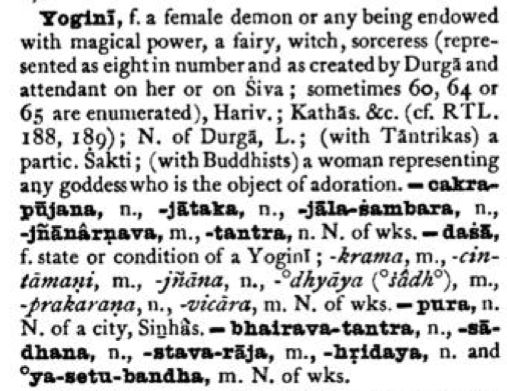The Yogini in Indian Culture
If you are a woman and are practicing yoga, be aware that there are historical and cultural challenges when you import a teaching from a very different culture and impose it on yourself. As you practice, and as you adapt the ancient teachings to your modern life, keep in mind that the classic yoga literature seems to have been composed by celibate males who were afraid of women.
Check it out:
The links are to page 858 and 1215 of the Monier-Williams Sanskrit-English Dictionary. Keep in mind that what Sanskrit is, by definition, is a fixed language. It is frozen in the year 500 B.C. Just think about that for a minute. What was the status of women in 500 B.C.?
When we modern Americans use the word yogini, we mean something quite different than the meaning in Sanskrit. And that is a good thing.

yoginī
(H2B) | yoginī [p= 858,1] [L=172693]f. |
| (H2) | yoginī [L=172694]f. |
| [L=172695] | N. |
| [L=172696] | (with |
| [L=172697] | (with Buddhists) a woman representing any goddess who is the object of adoration. |
siddhayoginī
(H3B) | siddha--yoginī [p= 1215,2] [L=244417]f. |
| (H3B) | siddha--yoginī [L=244418]f. |